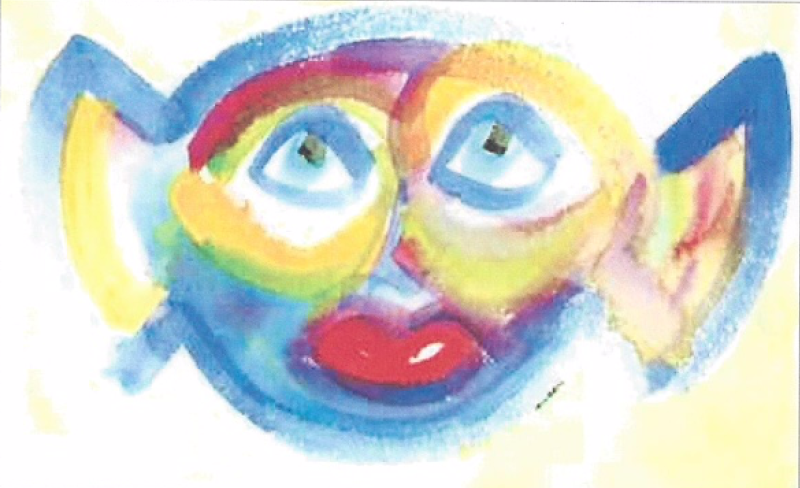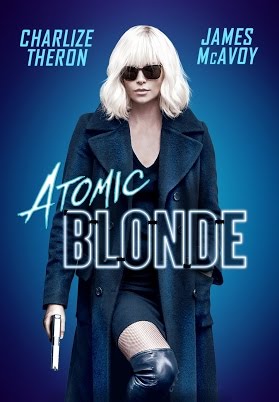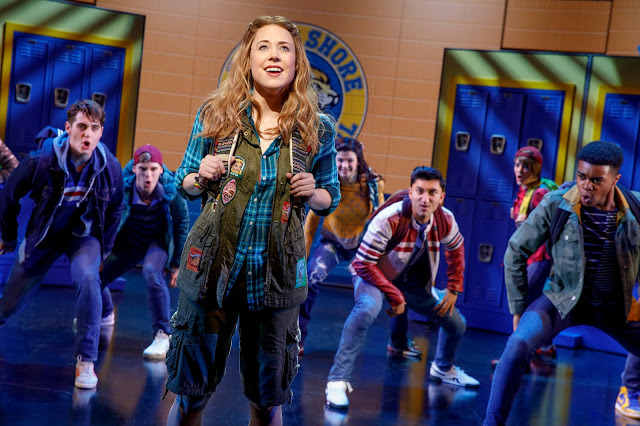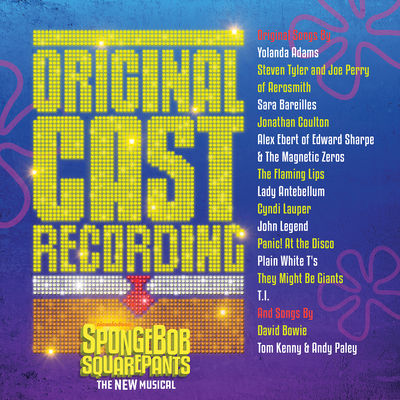‘THREE SMALL IRISH MASTERPIECES’ IS A PINT-SIZED DELIGHT
 Friday, June 8, 2018 at 10:29PM
Friday, June 8, 2018 at 10:29PM  Terry Donnelly, Clare O'Malley, Adam Petherbridge, David O'Hara, Colin Lane, and Jennifer McVey
Terry Donnelly, Clare O'Malley, Adam Petherbridge, David O'Hara, Colin Lane, and Jennifer McVey
HENRY EDWARDS New York 04/11/2018
Had there not been a fervent commitment to the development of Irish literary talent in the late 19th and early 20th century that has come to be known as the Irish Literary Revival, Charlotte Moore’s Irish Repertory Theatre probably would not exist today. And if that unfortunately were the case, audiences would have been deprived of the opportunity to see the Rep’s captivating “Three Small Irish Masterpieces.”
Under Moore’s loving hand, a dedicated six-member ensemble brings to life three concise one-acts, all written between 1903 and 1907.
The first two of three, “The Pot of Broth” by William Butler Yeats (“with an assist from Lady Gregory”) and Lady Gregory’s “The Rising of the Moon” are well worth seeing, but not so-called “masterpieces.” The evening’s closer, John Millington Synge’s “Riders to the Sea,” is an Irish Literary Revival classic and often hailed as one of the finest tragedies ever written.
A bit of history:
In 1898, W.B. Yeats, Lady Gregory and Edward Martyn established the Irish Literary Theatre Society during a period of great political turmoil and violence resulting from Ireland’s demand for self-government for Ireland within the United Kingdom.
As fierce nationalists – nationalism was the dominant political force in Ireland – the founders hoped to stage plays that inspired Irish patriotism and nationalism, questioned what it means to be Irish and what it means to be a nationalist, and contributed to the establishment of an independent Irish cultural identity apart from Great Britain.
Their efforts marked the launch of the Irish cultural revival that blossomed in the first decades of the 20th century.
In 1904, Yeats and Lady Gregory transformed their theatre society into Dublin’s Abbey Theatre, home to one of most significant and enduring events in contemporary theatre history, the birth of Irish drama and the world premieres of many of the most memorable plays of all time.
“Three Small Irish Masterpieces” pays tribute to their efforts.
Launching the performance in a lighthearted way, Adam Petherbridge, accompanying himself on acoustic guitar, delivers a spirited rendition of the Irish folk song, "The Beggarman's Song," about a man content to beg for his dinner every day.
It’s the perfect overture to Yeats and Lady Gregory’s early folktale, the "peasant" farce, “The Pot of Broth.”
Yeats called for plays that were serious, intellectual and abstract; this isn’t it.
In a nutshell, the brief concoction spins the humorous and cheerful tale of a nameless, exceedingly clever beggar (David O'Hara), who waltzes into a farm house he does not own with nothing but a stone in his pocket and strolls out with a cooked chicken and a bottle of whiskey.
Credulous and notoriously stingy peasant woman, Sibby Coneelly (Clare O’Malley), on the other hand, starts out with a chicken and ends up with a stone.
O’Hara has lots of fun as the quick-witted, shameless, fast talking scam artist. O’Malley, bossy, unpleasantly class conscious and ridiculously vain, is every inch a fitting target for his shenanigans.
The Pot of Broth” is a sketch and far as sketches go, an amusing one.
In her political play, “The Rising of the Moon,” Lady Gregory creates a pair of characters that are torn between duty and patriotism and ultimately united together as Irishmen through the folklore, myths and songs which they share as a nation.
The title comes from a ballad about insurgents who lost a battle to the British during the Irish Rebellion in 1798, but vowed to keep fighting until victory was in their grasp.
John Ford’s 1957 film version set the action to 1921, when the Black and Tan War was raging, pitting Unionists, determined to keep Ireland in the British Empire, against Republicanists, determined to free the whole country from British rule.
The Ragged Man (Petherbridge), so named because of his disheveled appearance, is an escaping political prisoner with a price on his head because of his involvement in the Irish struggle for freedom.
Convinced that the escaped rebel might head to the water's edge in order to be rescued by sea, the Sergeant (Colin Lane), an Irish police officer in the service of the occupying English government, stands guard at the harbor. He is a poor family man and badly in need of the hundred-pound reward he will receive if he captures the fugitive.
The fugitive does indeed turn up disguised as a ballad singer and engages the policeman who admits, “It’s very lonesome here with nothing but the moon.”
The nationalist’s songs arouse the Sergeant’s memories of former days when, as a young man, he had sung every patriotic ballad about the liberation of Ireland.
Struggling with his suppressed sympathies for the rebels, the Sergeant recognizes and threatens to arrest the escapee, but the Ragged Man calls on the Sergeant's love for Ireland to keep his presence secret.
The officer almost does, turn in the Ragged Man, but something holds him back, allowing him finally to muster the courage act upon his own volition and reject a social order that tells him how to act and bribes him with rewards.
Before he heads to the rescue boat that awaits him in the harbor, the grateful escapee delivers a parting reflection.
“Maybe I’ll be able to do as much for you when the small rise up and the big fall down….when we all change places at the Rising of the Moon,” he says.
Left musing alone on the moonlit wharf, the Sergeant thinks of the lost reward and wonders if he had been a great fool.
Colin Lane and Adam Petherbridge are splendid as they transform the mysterious encounter into Lady Gregory’s compelling demonstration that patriotism is the force that unites the people of a country.
 Colin Lane and Adam Petherbridge
Colin Lane and Adam Petherbridge
John Millington Synge, undoubtedly the greatest dramatist of the Irish Literary Revival, wrote plays of great beauty and power and “Riders to the Sea,” which concludes the bill, ranks as his best.
The highly compressed tragedy was composed in 1902 after the playwright paid four visits to the rugged Aran Islands on the west coast of Ireland.
For Irish cultural revivalists in the 1890s, the three Aran Islands lying 30 miles off the Galway coast represented the survival of an authentically Gaelic way of life that had stayed immune from Anglicization and modernity.
The islands were inhabited by poor Irish peasants with few resources, who lived in isolation from the rest of the world and earned meager livings as farmers or fishermen. Those who took to the sea braved the crashing waves of the Atlantic Ocean in tiny, frail, self-made boats constructed of tarred canvas.
It was no wonder so many widows lived on the islands.
Having lost five of her six sons to deaths on the sea, Maurya (Terry Donnelly)) is just such a widow.
The agonized mother has spent nine days in deep mourning for her fifth son, Michael, who drowned in the sea. Half-crazy with weeping and incapable of sleeping, she has paid repeated visits to the water's edge to see whether Michael's body has been washed ashore.
To her overwhelming distress, her sixth and last son, hotheaded, impractical Bartley (Petherbridge) plans to sail to Connemara to sell a horse.
Maurya begs him not to venture to the sea, telling him that the previous night she saw an omen in the sky that served as a warning.
The islanders were devout Roman Catholics, but the ancient beliefs and superstitions of Celtic paganism permeated their thinking and Maurya is a very superstitious woman.
"It's hard set we'll see surely the day you're drowned with the rest. What way will I live and the girls with me, and I an old woman looking for the grave," she cries out.
But Bartley refuses to be deterred and sets out on his way.
“He's gone now, God spare us, and well not see him again. He's gone now, and when the black night is falling I'll have no son left me in the world," laments the mother,
Chided by her daughters for sending Bartley off with an ill word, she goes after her son. In her absence, Nora and Cathleen receive clothing from the drowned corpse, a confirmation of Michael's death.
Maurya returns home and claims to have seen the ghost of Michael riding behind Bartley
In an epic and heartrending speech, she recalls how she has spent her entire life watching the moods of the sea, bread-giver of her family and also her worst enemy. Despite her prayers and tears, she has proved incapable of saving any of the men in her family.
Her sons, Stephen and Shawn were lost in "the great wind," her father-in-law, husband and son, Sheamus, were lost in a dark night, fourth son, Patch, drowned when his boat overturned, and Michael was drowned nine days ago. Now only Bartley is left and she had a sign that he too will be drowned if he went to the sea that day.
At that point, villagers bring in the corpse of Bartley, who has fallen off his horse into the sea and drowned.
He is laid out on a plank, and a sail cloth, the ancient ritual of the community in the face of death, placed over him. Women mourners join Maurya as she takes up the “keen,” a traditional lament for the dead.
Maurya, a tragic hero if ever there, does not wail, moan, or faint, Resigned to her cruel fate, like a true stoic, she does not complain about the cruelty of God or Destiny. Even at the time of her worst misfortune she finds consolation in the fact that now she will not have to cry or pray for another member of her family, enabling her to have undisturbed sleep during the long winter nights.
At long last, in her contest with the sea, she has been defeated, leading to her acceptance of the law of nature that everyone who is born must die, including the members of her family.
Maurya brings the play to a conclusion with one of the best known speeches in Irish drama:
"Michael has a clean burial in the far north, by the grace of the almighty God Bartley will have a fine coffin out of the white boards, and a deep grave surely. What more can we want than that? No man at all can be living forever, we must be satisfied."
Terry Donnelly delivers a towering performance in a wrenching play that really is a masterpiece.
Before the lights come up, the entire company gathers on stage and bids farewell with a heartfelt rendition of a traditional Irish lament.
“Three Small Irish Masterpieces” takes a mere 75 minutes to perform. It literally is pint-sized – and very special.
 Terry Donnelly
Terry Donnelly
Irish Rep's revival of Alan Jay Lerner and Burton Lane's "On A Clear Day You Can See Forever" begins on June 15 - For More Info, VISIT: IRISH REP





















